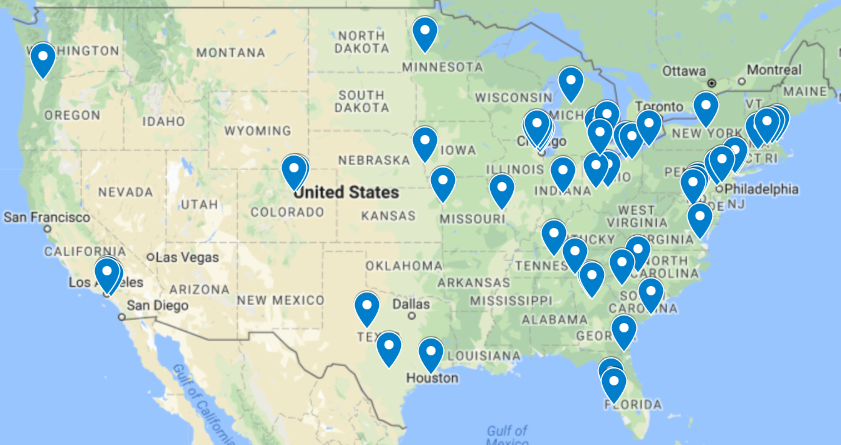Methylene chloride has killed more than 50 people across the country but so far E.P.A. and home improvement retailers have failed to act
 More than a year ago, citing “unreasonable risk of injury to health,” the EPA proposed a ban on the use of methylene chloride (also known as dichloromethane or DCM) and N-methylpyrrolidone (NMP) in paint and coating removal. These chemicals are linked to cancer, neorotoxicity as well as liver, kidney and reproductive toxicity. They have also caused more than 50 reported deaths from acute exposure since 1980.
More than a year ago, citing “unreasonable risk of injury to health,” the EPA proposed a ban on the use of methylene chloride (also known as dichloromethane or DCM) and N-methylpyrrolidone (NMP) in paint and coating removal. These chemicals are linked to cancer, neorotoxicity as well as liver, kidney and reproductive toxicity. They have also caused more than 50 reported deaths from acute exposure since 1980.
Safer Chemicals Healthy Families supported EPA’s proposal and also put large home improvement retailers Lowe’s and the Home Depot on notice that they shouldn’t wait for EPA to finalize its ban, but should protect consumers by taking these dangerous chemicals off their store shelves immediately.
Unfortunately, the Trump Administration has indefinitely delayed the proposed ban, and these products are still on store shelves, and people are dying – both from “DIY” use and professional use.
This week, the Center for Public Integrity published a story about the delayed EPA action, and, in the absence of federal protection, the push for retailers and state legislatures to take action. You should definitely read the full piece but here’s a sneak peek:
In December, however, while trumpeting its deregulatory efforts, the EPA changed the categorization of its would-be ban from “Proposed Rule” to “Long-term Action.” The agency said in an emailed statement last week that officials “felt that more time was needed to consider how best to analyze and address any risks from these chemicals.”
In fact, the EPA has done that already — as part of its original proposal. Asked for an estimate on how long additional work on the rule would take and whether the agency still intended to finalize the proposal, the EPA did not respond.
Maryland Delegate Clarence Lam, a Johns Hopkins Bloomberg School of Public Health physician with a specialty in public and occupational health, saw the EPA’s handling of this chemical as a call to action. In February the Democrat sponsored a bill to ban methylene chloride paint strippers in his state. The legislation isn’t going anywhere this legislative session, but he’s hopeful about its chances next year.
“I didn’t think further risk assessments needed to be done,” Lam said. “This chemical probably should have been banned long ago.”
Industry representatives testifying against his bill argued that a ban would be premature because the EPA is on the job. They pointed not to the languishing proposed restrictions but to a separate toxics review the agency is undertaking. Methylene chloride is one of the targeted chemicals.
But relying on that effort to get action on paint strippers could delay restrictions for years because it’s an opportunity for the agency to retrace all the steps it already completed, said Liz Hitchcock, who heads Safer Chemicals, Healthy Families, a group that works to get toxic substances out of products.
“In the absence of EPA taking action, we are urging — and definitely increasing our efforts to persuade — the largest home-improvement retailers to take action on their own,” she said, and get “these dangerous products off their store shelves.”
You can take action now by telling The Home Depot to get these dangerous chemicals off its shelves.




